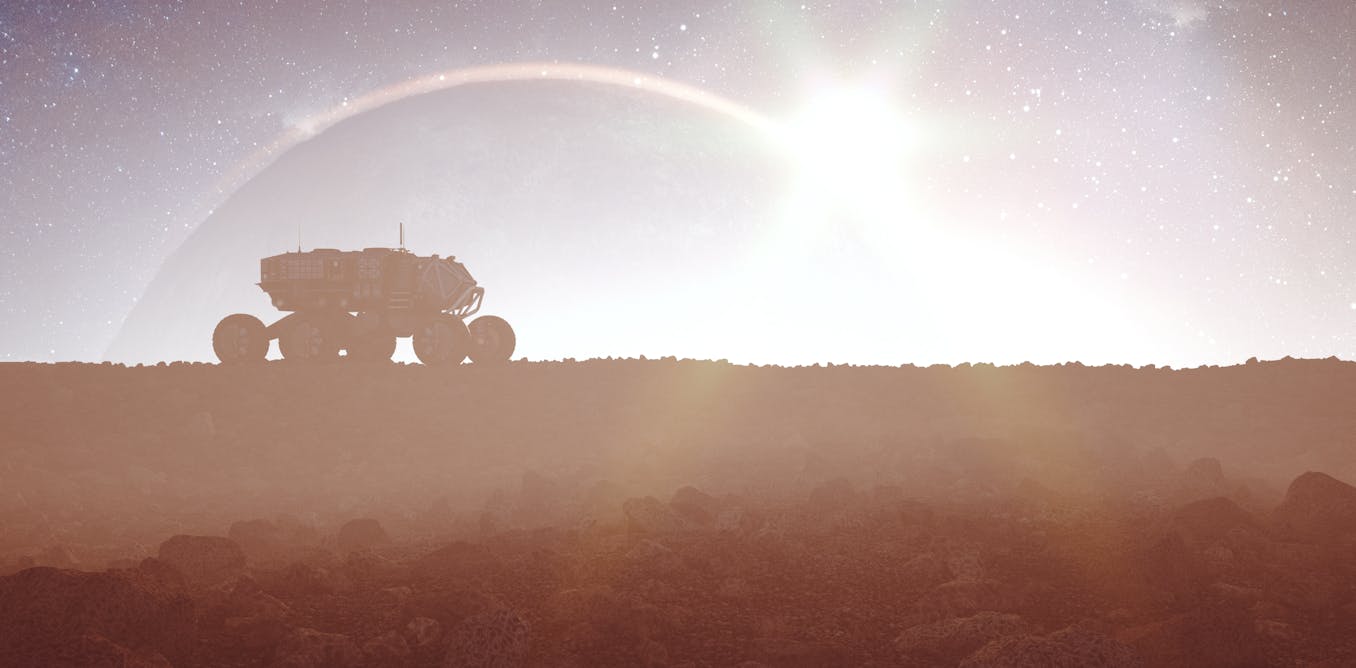by MARY-JANE RUBENSTEIN

The past decade has seen a rapid expansion of the commercial space industry. Rival nations are competing for prime military and economic positions beyond the Earth. Public and private entities are clamoring to mine the Moon, and a growing halo of space junk is polluting low Earth orbit.
In a 2023 white paper, a group of concerned astronomers warned against repeating Earthly “colonial practices” in outer space. But what’s wrong with colonizing space if there’s nothing there to begin with?
I am a philosopher of science and religion who has been writing about the space industry for several years. As government agencies and private companies turn their eyes toward the stars, I’ve noticed many of the factors that drove European Christian imperialism between the 15th and 19th centuries reappearing in high-speed, high-tech forms.
Some of these colonial practices might include the enclosure of land, the exploitation of environmental resources and the destruction of landscapes – in the name of ideals such as destiny, civilization and the salvation of humanity.
Many space industry leaders, such as Mars Society President Robert Zubrin, argue that although European-style colonialism may have had unsavory consequences on Earth, it is the only way to proceed in outer space. In fact, he warns, any attempt to slow down or regulate the space industry will make the Martian frontier inaccessible to humanity, leaving us stuck on an increasingly dull and decadent Earth.
The Conversation for more
